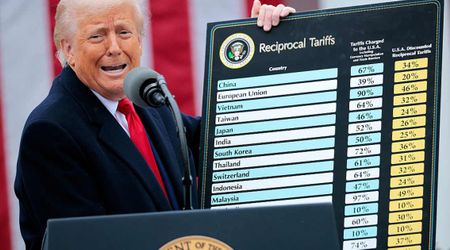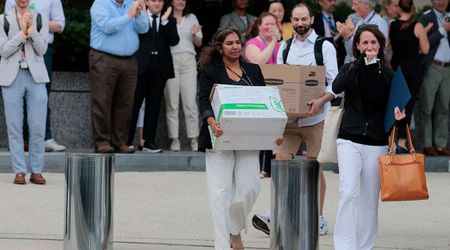Falling for FinTok trends? Here's how to sort smart moves from hype

Have you watched everything on saving money on TikTok? It's all about getting your money in order, and some are referring to it as "FinTok". It seems that more and more young adults are learning how to manage their money from TikTok, YouTube, and Instagram rather than from financial experts. It makes sense—you can get a nice advisor much more easily online, and young people are accustomed to using the Internet!
FinTok may sound nice, but it's important to keep in mind that not all online advice is sound.

A recent survey found that Gen Z is the age group most likely to get financial advice from social media. According to the survey, young folks are five times more likely than adults to receive stock advice via social media. Here are some things to consider before you follow the latest money-saving fad to the letter.
Loud budgeting
A well-followed FinTok craze is "loud budgeting." This is all about taking financial responsibility and being vocal about the decisions you make to save money. Say to your buddies, "Nah, I can't grab drinks tonight, gotta stick to my budget!" as an example. Of course, giving up fun activities like going out is a major component of saving money. However, there's an opposite.
Paul Hoffman, a financial consultant who studies FinTok trends, claims that consistently canceling plans with friends due to budgeting might make you feel lonely and dissatisfied. Therefore, while saving money is crucial, don't forget to enjoy yourself and your friends as well.
He says there are ways to save money without blowing off your friends all the time. It's all about finding a happy medium between saving your cash and having a good time with the people you care about.
Saving with envelopes? You might be missing out!
The "100 envelope challenge" is quite popular on TikTok. According to this, you save one dollar extra per day for 100 days. You save $1 on the first day, $2 on the second, and so forth. You'll have saved up more than $5,000 by the end! It sounds good, doesn't it? However, according to financial analyst Matt Schulz, it might not be the best course of action.
The reason is that even though you will save money, you can end up making more money. These days, interest rates on savings accounts can reach 5%. That implies that even while you sleep, your money can increase on its own. Imagine it as if your bank account were filled with magical money. So, while the 100 envelope challenge can help you save, you might be missing out on even more money by not using a high-yield savings account.
It appears that there's a more cost-effective method than the 100-envelope challenge. Some savings accounts are now offering more than 5% interest due to rising interest rates. That implies that even if you don't add to your money, it can still increase over time. For instance, you might make about $250 in interest alone in a year if you saved $5,000 in one of these accounts. Therefore, even if the 100 envelope challenge can help you save money, if you don't use a high-yield savings account, you may be losing out on even more free money.
Cash Stuffing

Another popular FinTok trend is "cash stuffing." This involves dividing your cash for monthly expenses, like groceries or gas, into separate envelopes. The idea is to only spend the cash in each envelope, so you don't go over budget. Sounds good in theory, but there are a few drawbacks to consider:
Lost earning potential: Just like the 100 envelope challenge, you could be missing out on interest. Remember those high-yield savings accounts we talked about earlier? They can help your money grow over time.
Risk of theft: Cash hidden at home is more likely to be stolen than money in a bank.
No bank protection: Unlike bank accounts, which are insured for up to $250,000 by the FDIC, if someone steals your cash envelope, you're out of luck.
So, while cash stuffing can help you stick to a budget, it's important to weigh the risks and potential downsides before diving in.
No-Spend Challenge
FinTok also has a trend called the "no-spend challenge." For a week, month, or even a year, the plan is to essentially cut back on spending money on everything that isn't absolutely necessary, such as food, rent, or bills! Instead of spending that additional cash on new clothes or dining out, it goes toward your savings target.
Although these tasks may seem like a game at first, experts warn that they can be difficult to maintain over time. It's preferable to concentrate on creating a budget that works for you and setting reasonable goals rather than attempting these extreme fads. There's no magic trick to saving money. The best way to reach your financial goals is to develop good habits, like learning how to control your spending and keeping your debt low.





















